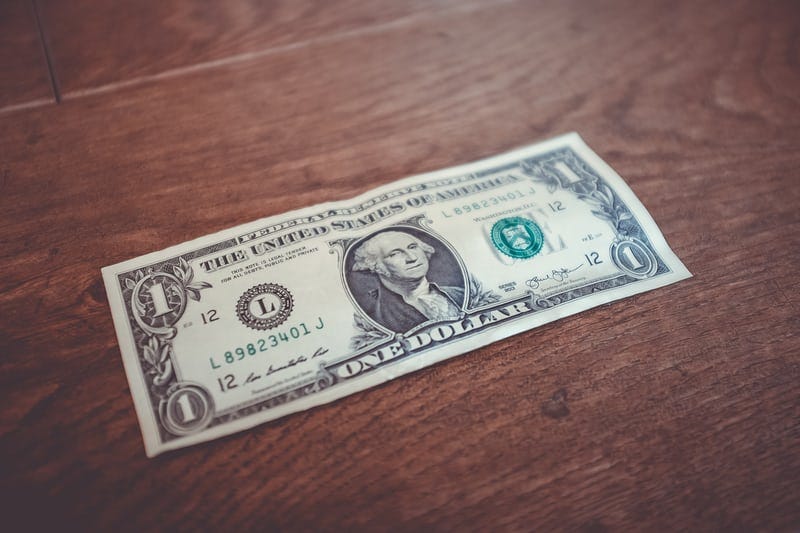Ever dreamed of retiring at 25?
I don’t know about you but that seems like a sad and boring life just relaxing all day.
No seriously. Having nothing to do just at the peak of your career?
In my opinion, you should retire when you feel fulfilled, have no more regrets, know you tried your best, decently tired, drained and want to take a well deserved break not just because of college.
The earlier you retire, the more pressure you put on yourself mentally and financially to make more money in a shorter period of time.
It can be draining, stressful and you can end up feeling more burnout by planning to retire in a year than from your job.
The problem with our culture and society is that we assume work is only to pay the bills. There’s nothing wrong with working for the intention of making money. We all need it to survive but there needs to be a bigger purpose or else you won’t see yourself working anywhere for long.
That’s the biggest hurdle graduates face out of school. Not doing it for the dough.
Retirement should be relaxing but unfortunately planning for it isn’t.
Personally, I plan on retiring around the classic retirement age of 60–70. Although I’m only 20 and haven’t been exposed to the true hustle and grind culture for more than 5 years, I cannot see myself living on a beach sipping margaritas all day for the next 50 years.
After all, my pet peeve is wasting time. Whenever I go on vacations with friends or family, I can barely sit still. I still read The NY Times daily, watch Squawk box and need to bring my laptop just in case a new idea sparks!
Only time will tell until I get really tired but for now, I don’t see that happening anytime soon. Don’t spread yourself too thin because then you’ll get stuck in a financial rut feeling the pressure to retire early.
What’s certain is uncertainty but what is guaranteed is that you have control over when you start planning.
It doesn’t have to be an extravagant or large amount. In fact, using the method of dollar cost averaging (DCA) is most effective instead of lump sums because it compounds faster (interest over interest) and not a hassle to scramble and find a lot of money all at once.

Gearing Up To Calm Down
When you think of someone retired, we usually think of grandma and grandpa on vacation every year living their best life and not having a care in the world. Yet, with the average American with a median account balance of just $60k in their 401(k), it is nowhere near the actual estimated balance of roughly $500k that should be allocated.
The ideal retirement amount is $10m but that is far from what most people have.
Retirement is simply living off of your retirement savings and the hard earned work you’ve grown all your life to substitute your standard of living.
It is a scary time to think about because the older you get the more tired, lazy, stubborn, less willing to learn and agile you are to produce more.
You have to spend wisely or else you can go bankrupt.
Naturally in most companies, unless you’re working alone, companies want fresh blood and see their employees thrive with grads. Image boosts sales. Just like in an interview, if you’re more attractive, you have a higher chance of obtaining the position even if you’re clueless. It’s all sales and has nothing to do with you as you get older. Companies thrive and live off image and freshness.
Although this isn’t as common, on the contrary, as much as companies want fresh blood, they could also be looking for experienced individuals whom a retiree is. Those who are older typically have more experience, unless they’ve done the same thing 60 times and can add a lot to a company but for the gig economy to keep running and innovation to expand, it’s best for younger generations to be in the workforce.

Work Till Death
The FIRE movement (Financial Independence, Retire Early) movement is especially popular amongst those in the most lucrative industries such as finance and tech (you can read here where you can make the most bucks) although those who do tend to work 80 hour per week shifts are slaves to their time and have no idea how to become financially independent anyways because they thought a job would make them rich.
Key Tip: Never believe a job will make you rich. From taxes taking a large chunk of your pay to your boss determining your worth, there’s no such thing as becoming truly wealthy within a job. You have to find that out on your own. The wealthiest in the world don’t work for anyone or in a cubicle.
There are several reasons why you never want to solely rely on a job. First off, lack of stability. The more income sources you have, the less volatile and worried you should be of getting fired.
No matter your brilliance and at what stage you are at in your career, money always comes first for a business so if there’s a deficit, they cut the people at the bottom first and make their way up until they are feasible to manage/support. Businesses could care less about you and all about staying afloat.
The easiest thing you can do to not be a slave to your time at work and earn additional income without doing any work is setting up automatic transfers from your salary so a portion goes into savings, 401(k) a.k.a retirement and most in the stock market.
And if you want to play it extra safe, get a job unrelated to finance because if the stock market tanks, you won’t be affected. Once interest rates get higher, 10-year yield rises, borrowing decreases, higher inflation, more expensive bonds out in the market, less mortgage lending with bonds and equities fighting for their share in the stock market hence high performers do poorly, banks have less customers and get slowly crushed.
As opposed to forever working in the tourism or hospitality space, sure it still isn’t 100% stable especially during a pandemic as we’ve witnessed, but only severely once or twice max will these industries get hit compared to volatile swings monthly in the market.

Reframing
The FIRE movement is defined by staying frugal, keeping extreme savings and investment motives to retire by 30. It isn’t for everyone, especially myself as I enjoy living a frugal, minimalist stealth wealth lifestyle by choice and need a purpose besides being on the beach for the next 70 years. A healthy dose of stress doesn’t hurt.
I get it.
Everyone has a preference and may enjoy vacationing for the rest of their lives but personal, I would go crazy without a mission.
Isn’t that why we get a job in the first place?
Why treat your job like a menial disgusting task that you must have to pay the bills?
Why not make it enjoyable so you don’t hurt and beat yourself up, ruin your relationships, kill the work life balance and instead take up several passive income sources (can read about all the possibilities here) to enjoy life.
There is a way to live a peaceful enjoyable fruitful life without beating yourself up to death on Wall Street.
97% of people who follow the FIRE movement did it because of these reasons:
-Fed up with work
-Tired of their brutal job
-Didn’t understand what work really meant straight out of college
-Only worked for money
-Obsessed with doing nothing
-Aren’t motivated by work

The FIRE Plan
So let’s say you’re really into this scary lifestyle of retiring early. You are currently struggling in a tough brutal 90 hour work week environment and want to get out ASAP.
You’re getting gray hairs, loosing sleep, missing family, and draining your eyes day in and out.
It’s only been 8 months and you’re already sick and dying.
Well, first off, that’s what you get when you work solely for money.
You don’t get much as expected fresh out of school anyway. Maybe after 3–4 years you start getting into the 6 figures but most cannot handle working past 1 year. Plus by the time it comes around to seeing how much you made, since higher paying jobs are located in higher paying cities, this means you must upkeep a higher cost of living which equates to more taxes taken out of your paycheck and living expenses, etc. that are all deducted that eat up into what you earn.
The goal is to save and invest very aggressively which means with no exceptions, no life for a few years leading up to the decision of setting free on the beach.
This cannot be done a few weeks in advance.
Somewhere between 50–75% of your income you must saved in order to reasonably retire in your 30s.
Retirement and Saving Is Hardest When You Are Young because of several reasons:
-More urge to go out and be with friends
-FOMO is real
-Have the most energy so want to do more = naturally more money spent
-Can utilize energy instead of depleting it
-Experiment and shop till you drop
-Have rarely any personal finance knowledge
-Straight out of living under your parents’ roof all your life
-No purpose which leads to depression and mental illness
Saving half of your income is tough the younger you are. You want to explore which means you are less careful and things get more expensive the younger you are.
Just think about it. The older you are, the more vigilant you are about how you spend because you’ve had some experience paying down debt, going through student loans, putting down a mortgage, knowing what you value in life and taking care of kids, etc.
When you are in your 30’s straight out of graduate school or just started working, financial literacy is foreign to you.
We cannot expect school to teach us the most vital skill in life to live a financially free life and the last thing students want to do is invest in themselves after they’ve just invested thousands and wasted 14 years into learning about Shakespeare and Mesopotamia.

Bulk Budget
As a non-retiree anytime soon, I still save roughly 60% of my income and the pandemic has only accelerated it since there’s nowhere to go hence no where to spend!
I’m worried once the restrictions lift and we get back to normal life if all our hard work during the pandemic will fade.
The way I can calculate my budget easily is from linking my accounts to Personal Capital (not sponsored). My checking, salary, passive income sources, tenants check, etc. all gets deposited into there and you can view beautifully formatted charts and graphs of your expenses each month.
Living a frugal life is relatively easy. Not as easy when you are young but if you are like me who tries to appreciate everything I have and doesn’t follow the trends or impulse buy when it’s on sale, you can be on your way to achieving FIRE or pretending to be in no time!
It never hurts to save until it gets cheap.
My monthly expenses as a 20 year old include:
-Groceries $100-Eat out every Saturday ($30)
-Amazon Prime $12.99
-Meidum $5
-NY Times $1
-WSJ $7
-No commuting due to pandemic-$300 per month
-No eating out due to pandemic-$40–100 extra
-No traveling due to pandemic-$1-$20k
Since March 2020, I’ve spent roughly $50 monthly on what I need. Insurance, healthcare, HOA/utilities is paid by my family and everything else I want is my responsibility to pay off since HS.
As you can see, most are a necessity and a few discretionary.
Balance is key.
The best budget tip you can get is to follow the 80/30/20 rule.
80% of your income on necessities, 30% on discretionary and 20% into savings (don’t touch it or follow pay yourself first a.k.a don’t look at it or notice you made it)
Food is a necessity, Amazon helps me save time and money as opposed to buying a smaller quantity option for less and the rest are for educational purposes to help create more income indirectly, spark ideas as a blogger for you all and overall enhance my curiosity and be somewhat knowledgeable about the world.
Once your savings reaches approximately 30x your yearly expenses, roughly $1m you should be eligible to quit your job and completely retire off of any form of employment, if you truly hate it.
But just because you win the lottery, doesn’t mean you need to quit and for financial safety purposes, you shouldn’t.
I highly suggest getting any form of severance you can get (employer keeps paying you for a certain amount of time after you are laid off-not fired because that means you don’t need the money).
If curious how I’ve reached a net worth shy of a million by age 20, you can read here. Once again, I don’t plan on retiring in the next 30+ years but this is some food for thought.
Staring with a budget is key.

3 Step Roadmap:
1) Get Out of Debt + Set up an emergency savings fund
2) Invest $15–30% gross income into a tax advantaged savings account(401)(k) or Roth IRA and max it out.
(Remember you won’t be able to withdraw money from these until 59 ½ unless you want to face a penalty)
3) Pay off any outstanding liabilities/ debt
The Truth
Depending on the size of your savings and desired lifestyle, this requires extreme diligence to monitor expenses, continued maintenance and reallocation of investments.
Also it is important to note when the stock markets fall and/or interest rate environments are low, the FIRE plan may fall short.

What We Can Learn From Early Retirees
Although there are a few who’ve successfully been able to retire by 25, it’s not common or seen as trustworthy. It is a risky path and not having a job is a silly move.
But what is true of any retiree, 20 to 80 is that they all had to assess their financial state, cut back on expenses, track progress and spending habits to the dime.
It’s easier to save than spend and naturally when you get older, you spend less because you’ve lived long enough that you know what you need.
You have all the memories in your noggin to recollect from and are less eager to travel and explore as opposed to when you are young to do so you have to fight triple hard to save which might not be worth it for some with no personal finance background.
If you can live on $30k per year that’s golden but most cannot.
The average cost of living in NY or San Francisco is $120-$500k per year for most families of 4.
Money shouldn’t be huge motivator for anyone. If you want to get your finances in check, please don’t obsess over making money.
Know you have to rely on backups to keep you financially afloat and never rely on 1 sole income.
Retire when it’s right for you but make sure to rest when you’re working too.
Life is short, days are long.

